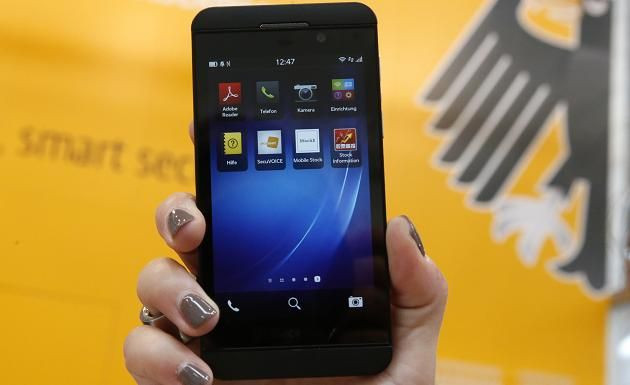Analysis: BlackBerry’s Deep Staff Cuts And What They Mean For Its Future

BlackBerry Ltd. (NASDAQ:BBRY) could lay off up to 40 percent of its 12,700 employees by the end of 2013, reports the Wall Street Journal, signaling flagging fortunes at the smartphone maker as it prepares for a potential sale.
The company declined to comment on the 40 percent figure. The Journal cites people familiar with the matter, who said layoffs will take place across all departments and happen in waves.
BlackBerry cut 5,000 jobs last year, and further small layoffs took place earlier this summer. Two years ago, the company had more than 17,000 employees and 14 percent of the U.S. smartphone market, said research firm IDC.
Now, the company has less than 3 percent of the U.S. smartphone market.
The layoffs are a “natural consequence” of the company’s ailing condition, ABI Research smartphone market researcher Nick Spencer told International Business Times.
“It’s quite dramatic, and given their recent financials, they’re clearly making themselves a lot leaner,” he said. “You do wonder if they’re going to start offloading parts of their business, and focus down on their software and services.”
In a separate move, BlackBerry also said on Wednesday that it would make BlackBerry Messenger, its iconic messaging service, open to Android and iPhone operating systems, starting Sept. 21.
Opening the proprietary messaging system to rivals may be just the start of their strategy, said Spencer, who expects the company to license its BlackBerry 10 operating system eventually, too.
“The way BlackBerry works, their hardware monetizes their software,” he said. “The value is really in the software and services, and the hardware side is certainly under threat.”
In late August, ABI Research figures showed that Android smartphones made up 80 percent of all smartphone shipments worldwide in the second quarter of 2013, just as Apple Inc.’s (NASDAQ:AAPL) iOS fell to 13.6 percent for the quarter, its lowest share in three years.
BlackBerry 10 software, however, had 1.2 percent of global market share, even lower than Microsoft Corporation’s (NASDAQ:MSFT) Windows Phone’s 3.5 percent.
“It is hard to envision a third ecosystem reaching a critical mass, especially when its supporting OEMs [device manufacturers] are in dire straits,” said ABI Research analyst Michael Morgan in a statement at the time.
Developed markets may already be oversaturated by smartphones, Citigroup Inc. (NYSE:C) analysts contend.
They revised down their handset and smartphone sales expectations for 2015 by 10 percent recently, flagging slowing growth in smartphone markets. The Citi analysts maintain a "sell" rating on BlackBerry.
BlackBerry formed a committee in August to see whether a sale of the company would be viable. The company reported a loss of $84 million in the latest quarter, better than its $518 million quarterly loss a year earlier.
Twitter was all abuzz with the news, too.
Will $BBRY able to recover from their very apparent loss of market share? I can only wish I have a crystal ball. :)
- SHALOM (@shalom08) September 19, 2013
The WSJ reported earlier in September that BlackBerry seeks to wrap up a sale by November.
© Copyright IBTimes 2024. All rights reserved.












